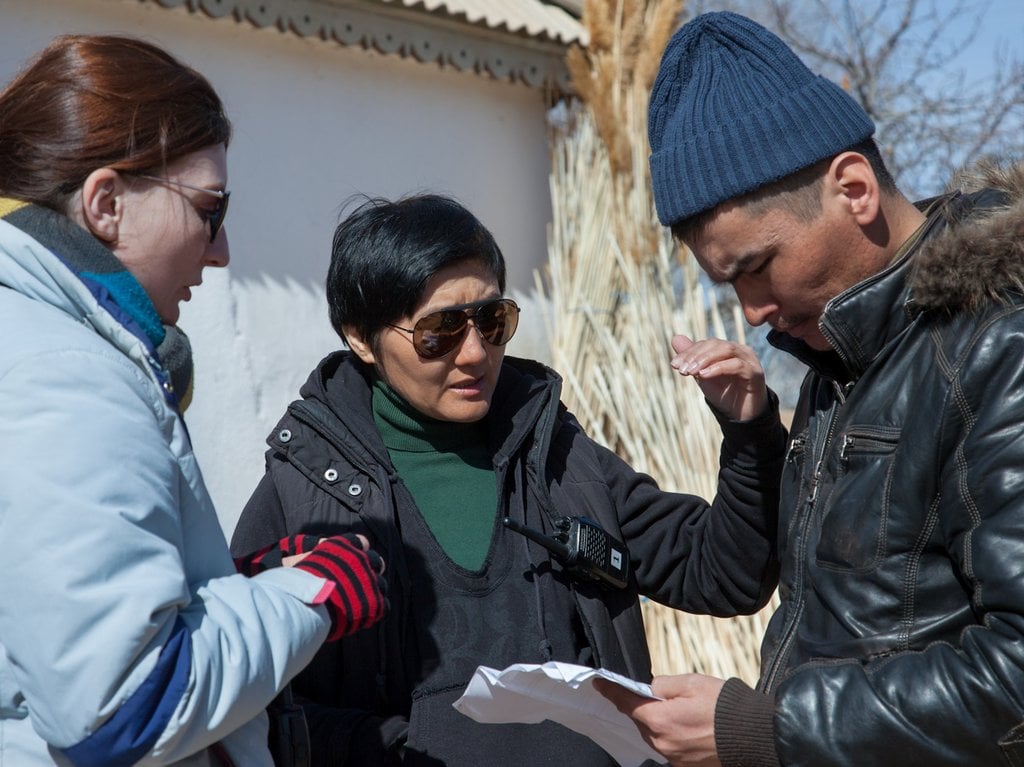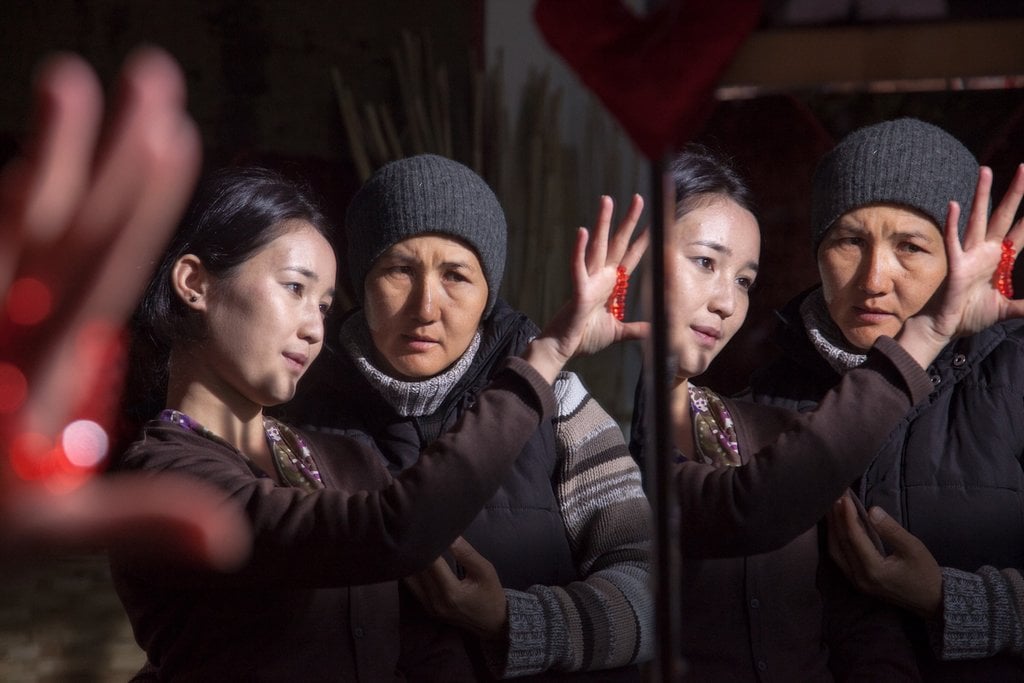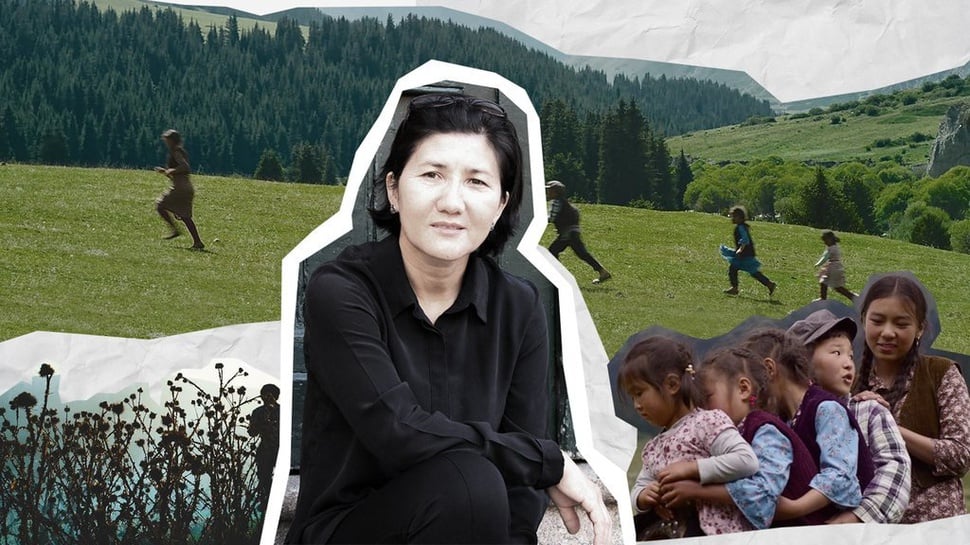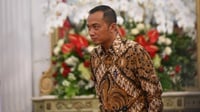tirto.id - Raised in a picturesque village overlooking the saltwater lake Issyk Kul in northeastern Kyrgyzstan, 57-year-old Dalmira Tilepbergen grew up cherishing an idyllic and joyful childhood amidst a stunning and soul-refreshing natural landscape.
Dalmira’s parents were horse herders who regularly travelled to the mountains, which cover 90 percent of Kyrgyzstan, a landlocked Central Asian country with a population of around 7 million.
Every summer, during school breaks, Dalmira and her sisters would join their parents in the highlands.
They spent their days exploring meadows, playing by the rivers, teasing one another, and occasionally going to the village market to shop and watch films in a tent.
From an early age, Dalmira learned the value of hard work by helping care for the family’s animals.
She rode and calmed horses, milked mares, and assisted her parents in selling the milk at the market.
Rather than spending most of her time with her sisters, Dalmira preferred playing with the sons of other shepherds, and sometimes even fighting with them.
She often assured her father that she could take on the responsibilities of a son, especially in herding the animals. Her father, however, never took her words seriously.
Even now, a vivid memory still lingers in Dalmira’s mind: her father’s hope during her mother’s pregnancy—a wish for a baby boy.
This film is also a part of her biographical book, The Era of Dislove, which was published in Russian language two years ago.
The Gift, the beauty of Kyrgyzstan and love of family
“This story is about my life,” said Dalmira, who dedicated The Gift to her father.
“I was closer to my father than to my mother,” Dalmira recalled. “But I understood my mother’s situation as well. It was very hard for her to live in a family where everyone expected her to give birth to a son, yet she had only daughters. She was under immense pressure.”
Dalmira explained the challenges of living and managing herds in the remote highlands without men.
“Men have the physical strength needed to care for herds in such harsh environments. That’s why I understand my father’s wish for a son—so there would be a man in the family to help take care of everyone.”
In the movie The Gift, little Dalmira’s story is brought to life through the carefree adventures of Arno, a spirited 7-year-old tomboy who takes pride in being mistaken for a boy.
Arno loves exploring new places. Her curiosity, often fuelled by following the neighborhood boys, even leads her to stumble upon a hidden marijuana field.
The film effortlessly portrays the daily life of Arno's family: her four sisters, their expectant mother, and a father eagerly hoping for the arrival of a son.

One of the standout features of The Gift is Dalmira’s commitment to showcasing the landscapes of mountainous Kyrgyzstan.
Drawing inspiration from the epic trilogy The Lord of the Rings by New Zealand filmmaker Peter Jackson, Darmila masterfully captures breathtaking aerial shots of green meadows and snow-capped peaks, beautifully complemented by authentic portrayals of shepherds guiding galloping herds of animals.
Beyond its poetic depiction of Kyrgyzstan’s natural beauty, The Gift conveys a deeper message about the interplay between wishes, actions, and their consequences.
A key aspect of Arno’s story is a mole on her lip, which she believes is a special gift. She is convinced that anything she wishes for will come true because of it.
For example, when Arno wishes for corn, she discovers a large cornfield during one of her explorations. When she wishes for a friend to fall ill, it happens.
So far, The Gift has premiered at over 20 festivals worldwide, including a special screening in the "Focus on Kyrgyzstan" section of the Venice Projects Bridge program at the 80th Venice Film Festival.
The Gift is also one of 25 films nominated in Alternativa Film Awards and Festival 2024 by inDrive. Last week, all film nominees, including five movies by Indonesian filmmakers, were being screened in Yogyakarta, a vibrant cultural hub city in Indonesia.
Alternativa, which debuted last year in Almaty, Kazakhstan, celebrates professionals from emerging film industries by showcasing impactful films that combine artistic quality with the power to inspire societal change and reach wider audiences.
The Gift has won several prestigious awards, including the Audience Award for Best Feature Film at the 5th MiWorld Young Film Festival in Milan, the Winner’s Prize for Best Feature Film at the I Am Tomorrow International Film Festival in Belgium, and the Multicultural Impact Award at the 2023 Stars Asian International Film Festival in Los Angeles.
A wealth of inspirations
With a career spanning over two decades, Dalmira has created a number of documentaries and short films.
The world premiere of her debut feature film, Under Heaven(2015), took place at the Montreal International Film Festival in Canada, where it received a Special Jury Prize. The film went on to win several prestigious awards at international festivals in the USA, India, Japan, Russia, Sri Lanka, and beyond.
Dalmira acknowledges that she has drawn inspiration from various movies and directors at different stages of her life.
When she was young, she was captivated by the Italian Neorealism movement, which focused on portraying the lives of the modern working-class society in 1940s Italy.
However, it was primarily Soviet-era filmmakers who inspired her to take filmmaking more seriously. She encountered their works while studying at the prestigious High Courses for Scriptwriters and Film Directors (HCFDS) in Moscow.
One of her key inspirations is Andrei Tarkovsky (1932–1986), known for his spiritually themed films.
She also admires Ukraine-born Alexander Dovzhenko (1894–1956), who directed the classic Earth (1930), and Georgia-born filmmaker Mikhail Kalatozov, whose movie The Cranes Are Flying (1957) remains a personal favorite.
“I admire their movies for the poetic portrayals of our bittersweet lives,” Dalmira remarks about these filmmakers.

When it comes to female directors, she mentions the works of Ukraine-born filmmaker Larisa Shepitko (1938–1979), singling out her favorite film, Heat (1963).
Dalmira also holds great respect for Dinara Asanova (1942–1985), a Kyrgyz female director who moved to Russia and began her filmmaking career in St. Petersburg. At the time, Dalmira notes, Kyrgyz society was not particularly welcoming to women in the film industry.
Before embarking on her filmmaking career, Dalmira studied philology. She began as a writer and Russian language teacher.
Her literary accomplishments include publishing short stories and poetry, which have been translated into multiple languages. She also served as the President of Central Asian PEN for eleven years.
Dalmira’s favorite poets include St. Petersburg-born Joseph Brodsky (1940-1996) and Spanish poet Federico García Lorca (1898–1936). She also enjoys Japanese haiku and Chinese Shi poetry.
On the prose side, she draws inspiration from novelist Vladimir Nabokov (1899–1977), famous for his work Lolita (1955), and Colombian writer Gabriel García Márquez (1927–2014), best known for his iconic novel One Hundred Years of Solitude (1967).
What next?
For her upcoming film projects, Dalmira has expressed interest in creating a Kyrgyz oral epic trilogy based on Er Töshtük, utilizing the latest technologies, including VFX and 3D.
“Through my films, I aspire to position Kyrgyzstan as a premier tourist destination in Central Asia. Our country offers beautiful landscapes that deserve to be showcased and admired by people from all over the world," says Dalmira, who is also a proud mother of a successful film producer daughter and grandmother to two beautiful grandsons.
She also expresses gratitude for the current Kyrgyz government's support for artists in culture, the film industry, and sports.

Dalmira, based in Bishkek, shares her love of traveling the world. To date, she has visited more than 70 countries, many of them as part of her film screenings.
Dalmira’s message to aspiring female filmmakers is to believe in their own brilliance.
“If you’re not a genius, why are you doing films? You must start by believing that you're a genius, and then you'll become one, so you’ll be able to create beautiful films!”
Editor: Nuran Wibisono












